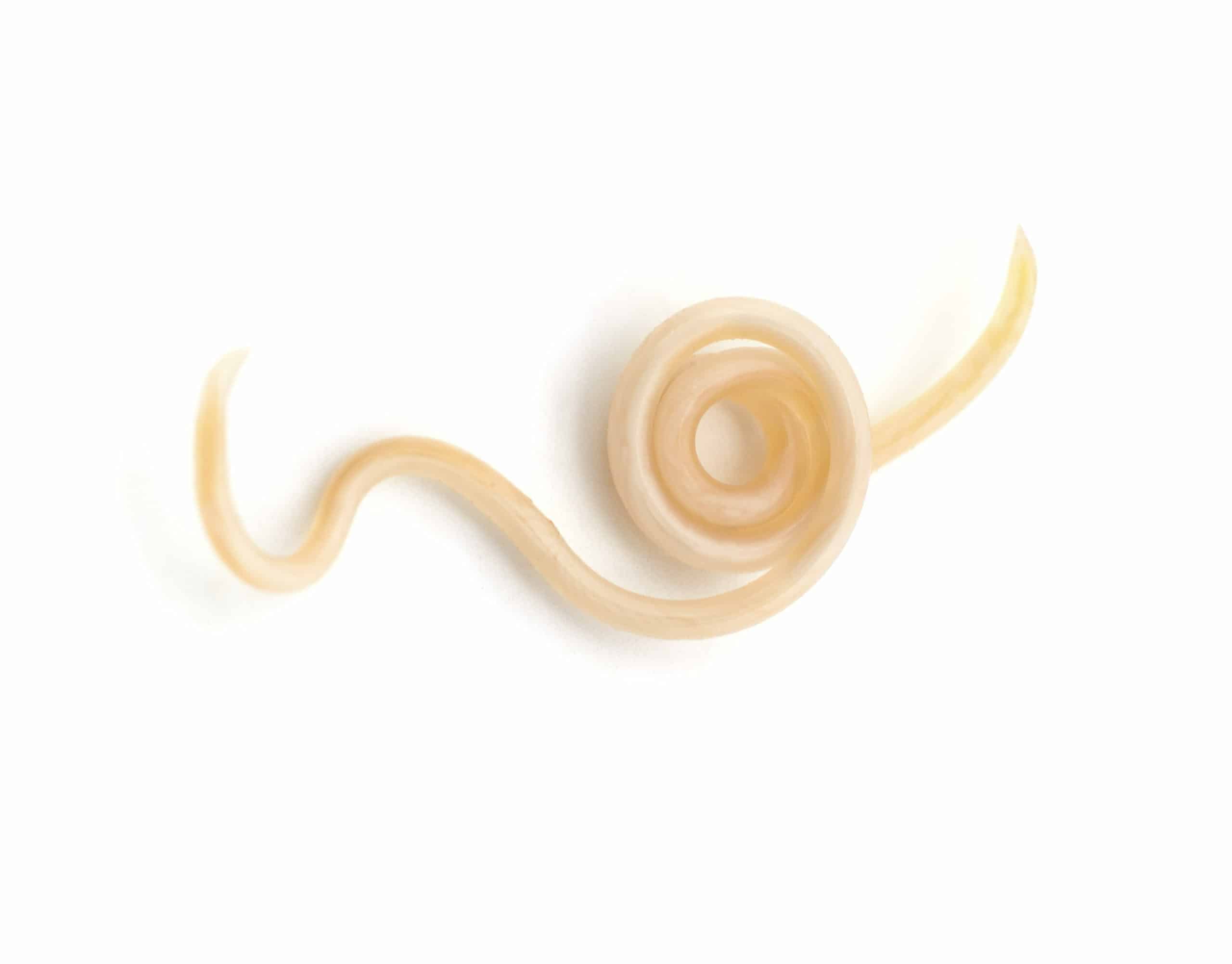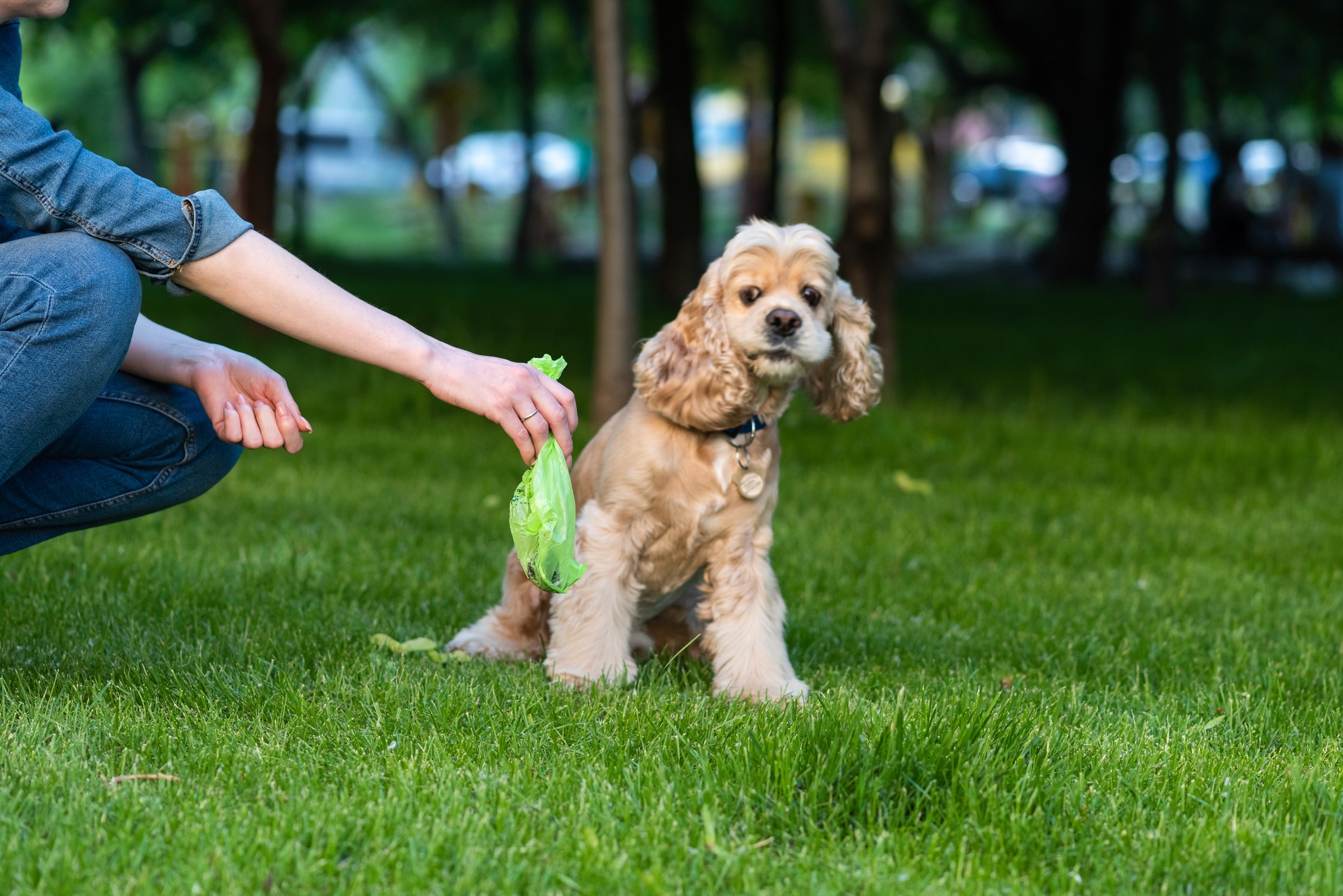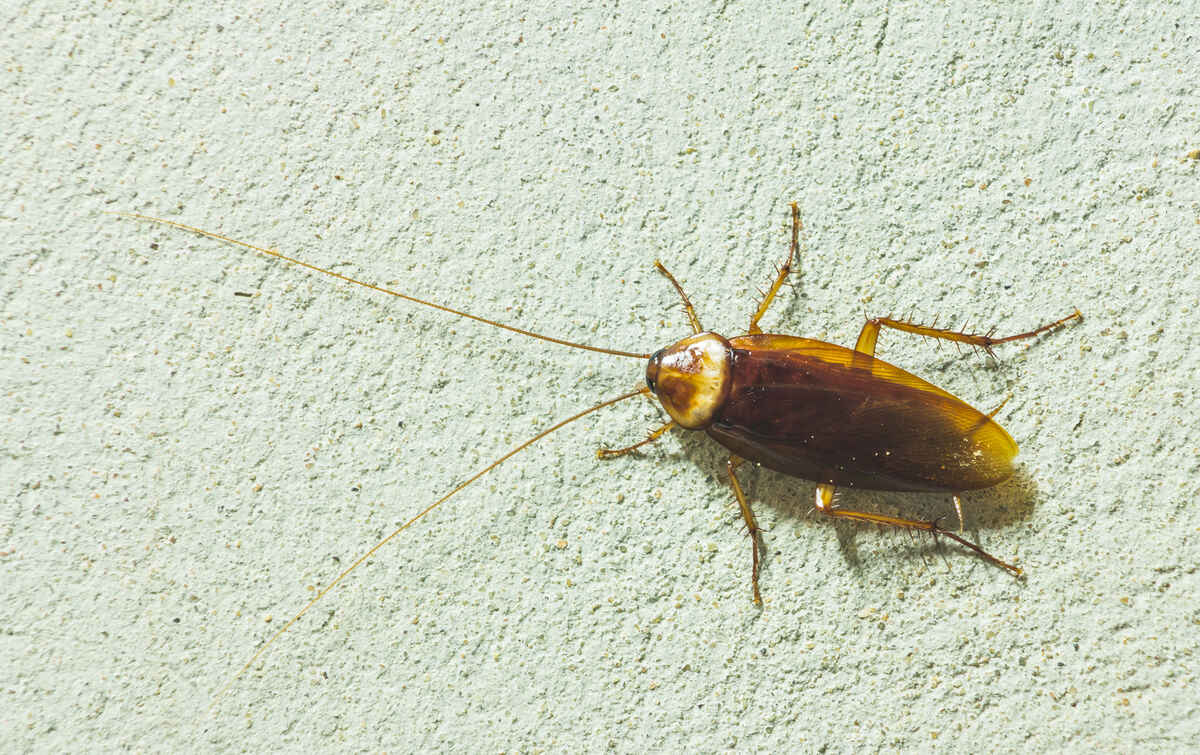Intestinal parasites, or worms in dog poop, pose a risk for puppies through senior dogs. Armed with what worms look like in dog poop, what to do next and how to easily prevent worms are simple ways to protect pups from potentially serious health problems and stop the spread.
What do worms look like in dog poop?
Of the six common intestinal parasites found in dog poop — coccidia, giardia, whipworms, tapeworms, roundworms and hookworms — only the last three are easily visible in dog stool.
- Tapeworms look like little white grains of wiggly rice in dog poop and are the most common worms that owners find, says Dr. Jerica Lugo, an associate veterinarian at Doylestown Veterinary Hospital & Holistic Pet Care in Doylestown, Pennsylvania. These parasites are only found in fresh stools, though sometimes owners find them on the dog’s fur or rear end, says Dr. Ann Hill, of Canfield Vet Dog and Cat Hospital in Pittsford, New York.
- Long white worms in dog poop or vomit are likely roundworms or hookworms, which resemble cooked spaghetti and are easy to spot, Dr. Lugo says.
What are the signs that your dog has worms
Other signs than seeing worms in your dog’s poop, include:
- Diarrhea
- Vomiting
- Pot-bellied appearance
- Scooting
- Lethargy
- Weight loss
- Blood (bright red or dark tarry) in stools
If you see worms in your dog’s poop or he’s showing the other symptoms of intestinal parasites, take your pet, and a fresh stool sample, to the vet. A fecal exam is required for a definitive diagnosis of any of the all six common intestinal parasites, which is why most vets ask for a fresh stool sample to be brought in during your pet’s annual examination. They send the sample to a lab for a fecal flotation, where the dog’s fresh stool is mixed with a solution that brings the parasite eggs to the surface, Dr. Lugo says. Then you know if your dog has worms in his poop and what to do next.
For most dogs, annual checks for worms in dog poop are fine, Dr. Lugo says, but pups who go to daycare or spend lots of time with other dogs outside the home (e.g. dog parks), may need more frequent testing.
How do dogs get worms?
Puppies often are born with parasites (especially roundworms) that they get from mom in the milk or while nursing, Dr. Hill says, so it’s recommended to test pups a few times a year during puppyhood. If the parasite is not shedding eggs, it may not show up in puppies during the first couple of tests, Dr. Lugo says.
Otherwise, these highly contagious parasites are typically spread orally and environmentally. Contact with contaminated soil, an infected animal or that animal’s feces or vomit are the easiest ways for dogs to contract these nasty parasites. Dogs love to sniff, taste, walk through and roll in all types of surfaces, and they lick their paws and coats, so it’s no wonder worms can be an issue. Dr. Lugo says these are the most common ways dogs get these intestinal parasites:
| Parasite | Transmission |
|---|---|
| Coccidia | From the environment when shed in feces and ingested by the dog. This especially shows up in puppy mills or shelter situations, she says. |
| Giardia | From the environment when shed in feces and ingested by the dog. Also, from drinking contaminated water. |
| Hookworm | Passed from mom through her uterus or while nursing. It also can be passed to humans in its adult form because the parasite can burrow directly into your skin. |
| Roundworm | Passed from mom through her uterus or while nursing. |
| Tapeworm | From ingesting an infected flea or animal, such as birds, reptiles or rodents. |
| Whipworm | From the environment when shed in feces and ingested by the dog. It can live a long time in the environment, Dr. Lugo adds. |
What health concerns come with worms in dog poop?
Not all intestinal parasites cause overt symptoms, but they all pose a risk to your dog’s health. The primary concerns with worms in dog poop are vomiting and diarrhea. With puppies or those dogs with a lot of worms, they get quite thin because it affects their ability to absorb nutrition, Dr. Lugo says.
Hookworms literally hook into the host’s intestinal wall and can cause bleeding and anemia, Dr. Lugo says, and there can be skin irritation or infection if they entered from burrowing through the skin. Giardia and coccidia are accompanied by severe diarrhea that can lead to dehydration, she adds.
On the positive side, intestinal parasites remain in the dog’s intestinal track instead of traveling elsewhere, which is why feces is the key to spreading.
Can humans get worms from their dogs?
Hookworms, roundworms and tapeworms all can be contracted by humans, as well. Learn how to protect yourself and your pets below.
What should I do if my dog has worms?

Dewormer is the gold standard for treating worms in dog poop. Vets typically recommend deworming dogs — especially puppies — one to two times after adoption or purchase, and then start them on prevention so they don’t get them again, Dr. Hill says.
Heartworm prevention is an excellent remedy as most can treat intestinal parasites, Dr. Lugo says. Other dewormer options include pyrantel pamoate and fenbendazole, she says, adding that some intestinal parasites require more specific treatments.
- Giardia often requires fenbendazole and metronidazole.
- Tapeworms are treated with praziquantel.
- Coccidia must be treated with sulfadimethoxine.
For those seeking a natural option for treating worms in dog poop, there aren’t any proven effective against intestinal parasites, Dr. Lugo says. She’s seen some owners try garlic, but it’s not recommended since it can cause anemia in certain dogs that are sensitive to the vegetable.
Even some over-the-counter dewormer treatments are not strong enough to tackle these common intestinal parasites, Dr. Hill says. The best strength and dose are from a veterinary prescription, which provides the proper dose and number of treatment days, she says.
Most of the time, deworming treatments work within a few hours to days of starting to help dogs feel better and wipe out the infection, Dr. Lugo says. However, if you’re dealing with a lot of parasites or some stubborn ones, it might take several treatments.
For example, whipworms need longer treatment (every 3 weeks for 3 months), and giardia can be extremely stubborn, requiring a longer initial treatment or several treatments, Dr. Hill says. Dogs may feel better, but the parasite still can be found in the feces, or the stools remain soft.
Do I have to treat all household pets for worms?
Not necessarily, Dr. Lugo says. The best thing to do is bring in a fecal sample from each dog to see if treatment is necessary. You will need to protect other dogs in the household by monitoring the ill dog and immediately cleaning up after each bowel movement.
On the other hand, Dr. Hill says some people feel more comfortable treating the whole pack since there are virtually no side effects to using dewormers.
How can I prevent my dog from getting worms?
The best ways to protect your pet (and yourself) from getting intestinal parasites are:
- Use monthly heartworm prevention.
- Clean up after your dog within 24 hours of him pooping and properly dispose of it.
- Use good hygiene (ahem, wash your hands well each time).
- Try keeping your pup from other dogs’ feces.
- Bring your dog and his poop to the vet at least once a year.
Worms in dog poop are something that nearly every pet owner will deal with at some time in their pooch’s life. But if you know what you’re looking for (or at!) and are proactive about testing and treatment, you easily can protect your dog and household from a worm infestation. For additional information and resources, check out the Companion Animal Parasite Council (CAPC) Pets and Parasites website.
Featured Photo Credit: O_Lypa/Getty Images
Contents
- What do worms look like in dog poop?
- What are the signs that your dog has worms
- How do dogs get worms?
- What health concerns come with worms in dog poop?
- Can humans get worms from their dogs?
- What should I do if my dog has worms?
- Do I have to treat all household pets for worms?
- How can I prevent my dog from getting worms?










